An unfortunate legacy of America’s “sole superpower” status is the tendency to over-emphasize Washington’s agency in shaping the global environment and downplay the role of others. For instance, the Obama administration deserves a great deal of credit in changing the tone of the U.S.-Russia relationship. But also critical to the reset’s success were Ukraine’s 2010 presidential election, which took that country off the European geopolitical chessboard, and the ongoing instability in Pakistan, which made the Northern Distribution Network more vital to supplying the military mission in Afghanistan. It may sound like a truism, but it is one that U.S. policymakers […]
Domestic Politics Archive
Free Newsletter
The return of Gilad Shalit to Israel in exchange for more than 1,000 Palestinian prisoners this week signaled a cooperation not seen between Israel and Hamas for nearly a decade. According to Daniel Levy, who co-directs the New America Foundation’s Middle East Task Force in Washington, the deal may well discredit ongoing narratives that it is simply not possible to deal with Hamas. However, says Levy, outside observers should take care not to read too deeply into the swap in the context of the wider conflict between Israel and Palestine. “I think it says almost nothing — and almost certainly […]
Since the Kirchner’s came to power in Argentina, the country has enjoyed one of its longest periods of economic growth. Incumbent President Christina Kirchner’s approval currently stands at about 60 percent and pre-election polls, ahead of the country’s presidential vote Sunday, suggest she could win by a landslide.
Senegal’s president is facing the most serious political unrest of his career just months before seeking re-election to a third term. This report produced by the U.S. government-run Voice of America examines the movement aligned against him with particular focus on a group of young Senegalese musicians and journalists called “Y’en A Marre” or “We’ve Had Enough”.
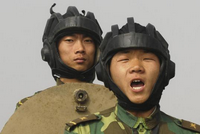
There exists within the Pentagon an unshakeable line of reasoning that says the Chinese military threat to the United States in Asia is profound and growing, that the most likely great-power war conflict will be over Taiwan or the South China Sea, and that the primary trigger will be China’s burgeoning — and uncontrollable — nationalism. Objectively, China’s military capabilities are certainly growing dramatically, but our conventional wisdom tends to break down in the structural plausibility of the scenarios. That’s why the firm belief that rampant nationalism will trigger an eventual conflict becomes so crucial, especially when considered in combination […]
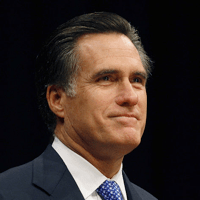
In her WPR column yesterday, Frida Ghitis noted that the global chessboard is being “reset” as countries re-examine longstanding partnerships and alliances, both formal and informal, in the face of broad geopolitical changes taking place today. “As a result,” wrote Ghitis, “the coming months and years will bring about a recasting of important strategic links, some of which have been part of the global landscape for decades.” The evidence of this transformation can be found across the Middle East and South Asia, as a result of the Arab uprisings, but also due to the Afghanistan War, which has strained U.S. […]
The re-election this week of Poland’s pro-market and pro-European Prime Minister Donald Tusk made headlines for marking the first time in the nation’s post-communist era that a ruling party has won two consecutive terms. The victory confirms Tusk’s place at the forefront of a Polish political landscape still burdened by last year’s horrific national tragedy that saw President Lech Kaczynski and dozens of other top political and military leaders perish in a plane crash. But it also reflects Tusk’s success at positioning Poland as a key intermediary within Europe’s greater geopolitical landscape, says Jana Kobzova, the coordinator of the Wider […]
Liberians have gone to the polls in large numbers for the second presidential election held since the nation was gripped by civil war. The country’s election commission says results are due Thursday in the contest pitting Nobel Peace Prize recipient and incumbent Ellen Johnson Sirleaf against former diplomat Winston Tubman.
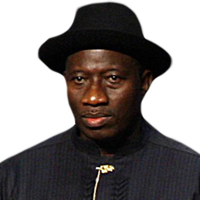
PORT HARCOURT, Nigeria — On Oct. 2, Nigeria celebrated the 51st anniversary of its freedom from British rule. A large gala was planned in Abuja, the fast-growing Nigerian capital located in the center of the country. But, days before the celebrations, Boko Haram, a Muslim extremist group based in the country’s north, and the Movement to Emancipate the Niger Delta (MEND), based in the country’s oil-rich south, both threatened to disrupt the festivities with violence. Boko Haram had already made it clear that it was capable of attacking Abuja on Aug. 26, when it exploded a bomb at the United […]
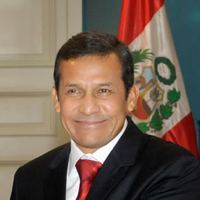
In June 2011, Ollanta Humala was elected president of Peru after campaigning on a platform of change. Significant for Peru, but also for South America more broadly, Humala advocated for moderate, not revolutionary, change — calling for a better and fairer distribution of the fruits of Peru’s impressive economic growth and for lower levels of corruption and crime. That kind of program won’t entail upending the prevailing system. It will, however, require serious institutional reform. The Peruvian case dramatically illustrates wider trends in South America, where sustained economic growth and sound macroeconomic policymaking in recent years have coexisted with continuing […]
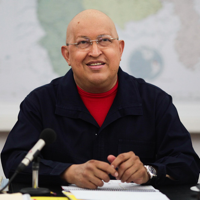
One of the subjects dominating discussions of Latin American politics this year has been the June 30 revelation that Venezuelan President Hugo Chávez is being treated for cancer. Very little is known about his illness, other than the not-so-encouraging news that he has received four, possibly five, chemotherapy treatments, most them in an undisclosed location in Cuba. A bombshell accompanied by such secrecy has raised speculation about the future of Venezuelan politics. It seems that all scenarios, ranging from Chávez’s death to his full recovery, are possible, which makes the presidential election scheduled for October 2012 one of the most […]
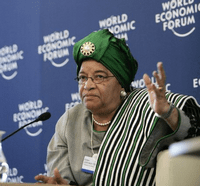
MONROVIA, Liberia — In her 2006 inauguration speech, with Liberia still reeling from civil wars that had lasted from 1989 to 2003 and killed more than 250,000 people, President Ellen Johnson-Sirleaf referred to a greeting children here use when their fathers return home from work — or, as is common in Liberia, from trying to find it: “Papa na come.” “Well, too many times, for too many families, Papa comes home with nothing,” said Johnson-Sirleaf, Africa’s first elected female head of state. “We will work to ensure that when our children say ‘Papa na come,’ Papa will come home joyfully […]
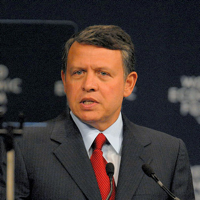
One of the more curious aspects of the popular revolts unfolding in the Middle East is how much better monarchies have fared in the turmoil than have other unelected regimes. The region has long been ruled by a wide assortment of kings, emirs, retired military men, successful coup leaders and their sons. All of them came to power without the benefit of true democratic elections, even if they occasionally summoned their people to the polls. Despite that crucial similarity, the uprisings commonly known as the Arab Spring have followed remarkably different paths for monarchical regimes than they have in countries […]
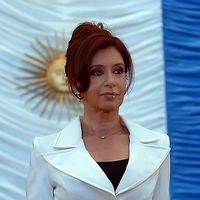
When Argentina’s economic and political system imploded in 2001, few imagined that only 10 years later the Southern Cone nation would be one of the fastest-growing economies in the world. After a nimble recovery fueled by a depreciated currency and a spike in world commodity prices, today Argentina is flush with cash. Its economy is booming, and barring a global meltdown, demand from China and other emerging markets for its commodities is unlikely to fade. So it is not surprising that President Cristina Fernández de Kirchner won more than 50 percent of the vote in the country’s open primaries in […]
